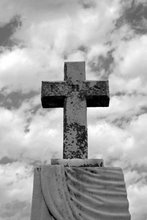
I’m surprised I didn’t strain my neck reading Jon Krakauer’s “Where Men Win Glory: The Odyssey of Pat Tillman.” Nearly every chapter caused me to shake my head in disbelief: disbelief as to what really goes on in politics and war. I think most us of suspect there are instances of deceit, poor decisions, cover-ups, and lies at the governmental and military levels. But Krakauer forcefully moves these suspicions into the realm of concrete facts through solid research and interviews.
Krakauer’s prologue starts in Afghanistan and recounts the fateful trek of Pat Tillman’s last hours and the debacle that led to his death at the hands of members of his own platoon, his brothers-in-arms in the Army Rangers. From there, he gives background information on the Afganistan-Soviet War of the 1980s and also the rise of known terrorist and Taliban leaders such as Osama ban Laden, Muhummad Omar, and Jalaluddin Haqqani. I appreciated knowing this background history; it helped me better understand not only the rise of terror networks, but also how the U.S. provided financial and weapons support to nascent terrorists who would later use those “gifts” against us. Some previous reviews of this book have criticized this historical information and perhaps expected more of a sole focus on Tillman. But I counter that it’s critical to understand the region’s history before we can understand how Tillman ended up in Afghanistan in the first place. Perhaps a person already well-grounded in Afghan history would find this section unnecessary. But, as he’s done with his previous books such as “Into the Wild” and “Into Thin Air,” Krakauer writes for the common person and illuminates a time and place few of us are familiar with.
Krakauer sets up a parallel story right away. He weaves in information about Tillman while at the same time letting us know what’s going on in Afghanistan. At times, the lead-ins to this device become a little repetitive. For example, many sentences start with “While Pat was [insert action—graduating high school, playing his first game as a Cardinal, etc.], back in Afghanistan…” It seems a little forced, as Tillman and the events in Afghanistan don’t converge until Pat enters the Army in 2002.
Krakauer adds depth and emotion to the one-dimensional image of Pat Tillman that exists in many of our minds. Ask people to describe Pat Tillman, and unless they are NFL fanatics, likely they will only say, “Oh, he was that football player killed in Afghanistan.” No doubt much of the public might still believe the initial story of Tillman that was released: That he was killed by the Taliban while throwing himself in the line of fire to protect his platoon. The real story—that “friendly fire” killed him—wasn’t released by the military until more than a month after his death. The news was purposely delivered on the Saturday of Memorial Day weekend, engineered to be released when news operations generally are short-staffed and when the public’s attention is diverted elsewhere. The news bloomed for about a day, and then quickly disappeared.
A complete picture of Tillman is revealed. There’s no doubt that this was a “good guy,” someone who believed 100 percent in honor, courage, and doing the right thing. But Krakauer points out Tillman’s foibles, too—a fight during his senior year landed him in juvenile lock-up for a month and nearly jeopardized his college football scholarship. But he quickly matured during college and set himself on the right path. We get a glimpse into Tillman’s mind through journal entries that Krakauer includes. Tillman was a curious man, eager to read tomes written by Noam Chomskey and Homer. But that doesn’t stop him from writing honestly and conversationally in his journals, which are punctuated frequently by colorful language.
Krakauer exhibits the power of observation and turn of the phrase we’re accustomed to in his work. From the prologue: “Up there on the heights, far above the gloom of the valley floor, the otherwise barren slopes were dotted with graceful Chilgoza pines still washed with sunlight, their silver bark and viridescent needles glowing in the fleeting rays.” Or, “There was even a view of the Tacoma Narrows Bridge, which arched through the mist over the eponymous strait like an image from a dimly remembered dream.”
Krakauer read through the thousands of pages of military testimony in the wake of Tillman’s death. In the last part of the book, he boils down that information into readable prose. Readers get a sense that he’s passing judgment, but he also makes it clear throughout the book that unfortunately, the “fog of war” can cloud decisions and friendly fire incidents will continue to occur. But it’s as if he’s saying there’s a right way to deal with these tragic accidents, and there’s a wrong way. This 380-page book thoroughly describes the wrong way.



